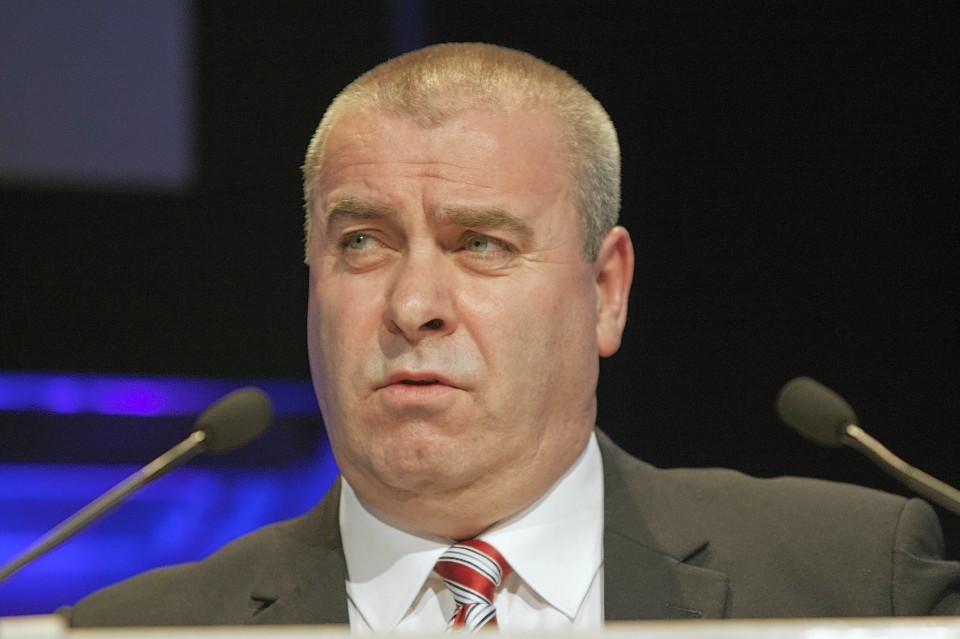The head of the organisation representing rank-and-file police officers has issued a stark warning against further cuts.
Brian Docherty, chairman of the Scottish Police Federation (SPF) said expecting the police to do more with less was “fanciful nonsense”.
“All that can be delivered with less is less,” he told the federation annual conference at the Trump Turnberry Resort in South Ayrshire.
The previous day, Chief Constable Sir Stephen House had warned Police Scotland needed to save £11million this year, despite £132million in cuts over the past two years, equivalent of the entire operational budgets of three of the former eight regional forces.
In a highly charged speech, Mr Docherty said the federation was all too aware of the serious risks to policing from the attack on budgets due to financial problems and the austerity drive.
“The police budget is being cut. It can be cut no more,” he said.
“The expectation to make more savings cannot be delivered without hurting the police service, police pay and police numbers.”
Cuts will mean communities let down, the most vulnerable forgotten about, and preventative work – which is already under threat – becoming a thing of the past, Mr Docherty said.
With the general election just weeks away he issued a warning to leading Scottish politicians at the conference – First Minister Nicola Sturgeon, Labour’s Jim Murphy, Conservative Ruth Davidson and Liberal Democrat Willie Rennie.
The party leaders heard it was “perverse” to tolerate aggressive tax avoidance while corrosive public service cuts were lauded.
If politicians undermined policing they would be “actively working against improving the life chances of many”, Mr Docherty said.
“If you choose to do so you will be failing in the first duty of government and we won’t let that pass without a fight,” he said.
“Whoever forms the next government must put human needs ahead of financial greed.”
Mr Docherty appealed for officers to be considered a “special case” when it came to pay awards considering the personal sacrifices and risks they made every day.
While he understood the politicians desire for statistics to allow a degree of control over police activity, the introduction of business practices and accountancy measures was where “things started to go wrong”, he said, because policing cannot be explained in pure statistical terms.
